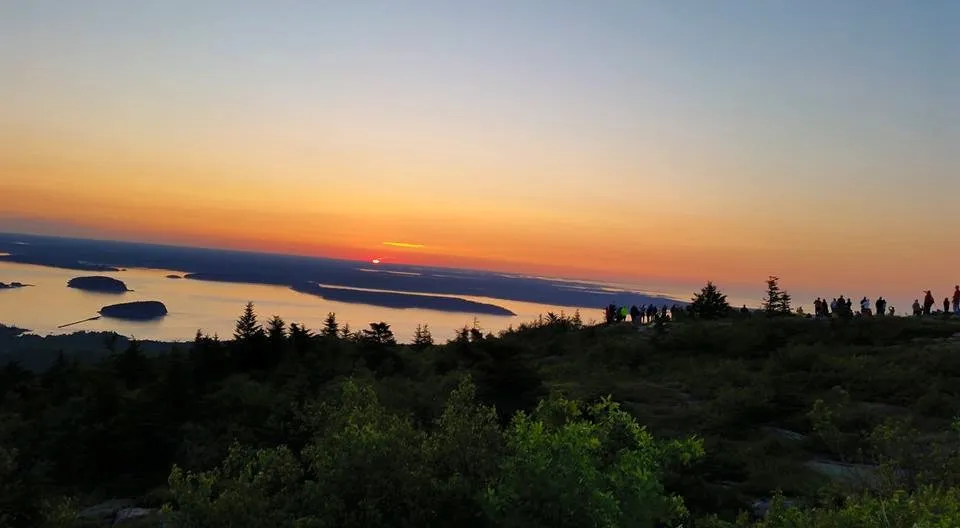In the introduction to my first book, I made a general observation about the human species; “At our core, the primal driving forces of the human race, as they are with all living creatures, is pretty straightforward: we are born, and we die, and along the way, in the name of survival, we labor to hone and refine our skills and abilities, in harmony with our environment and available resources, such that we have adequate shelter, sufficient sustenance, and successful reproduction in order to continue the species in the name of avoiding our own extinction.”
On an individual level, I suggest that it is the life story of each of us that ultimately makes up the entirety of what we call the “Human Experience,” which is necessarily unique, like a fingerprint, for each of us and, when combined -makes us all members of the same larger family. As I said in the book, “Some of us teach, and some of us learn, and all of us improve, hopefully, our “human condition” while at least trying to help others improve theirs.”
In the case of the American Nation, I believe, as many do, that the whole is greater than the sum of its parts. Likewise, I believe that the whole of the human race is greater than the sum of its parts; while there may be 8 billion members of the worldwide community of Homo sapiens, a closer consideration of the numbers of small communities – friends, families, schools, churches, charity organizations, hospitals, doctors, service providers, and caregivers and so on – adds up to an almost unfathomable number of communities amongst us working together to teach or learn or contribute toward improving each other’s Human Condition.
I have worked through putting together this book, a labor of love (and a goal I have pursued off and on throughout my life), and I always intended to bring a little levity and lightheartedness to readers that may come across this larger collection of essays someday, and my intention has always been to bring sarcasm, levity, humor, and as much salty language as I could get away with because my goal here is to entertain as well as enlighten and inform you about all the shapes and sizes and richly diverse sorts of people that many of you will never come across unless, like me, you are forced to because of disabilities or mobility constraints that make it impossible to avoid the so-called man and woman on the street that most of you have the luxury of being able to avoid otherwise.
In my travels, with all the batshit crazy I have encountered, I have also encountered incredibly warm and loving people in possession of an endless capacity for care, generosity, and deep and sincere concern for their fellow man. There was simply no way I was going to skip over the opportunity to recognize and celebrate those people that have committed their lives to helping others and doing their part in tending to the needs of others, selflessly working day and night to sustain and improve their particular human condition.
In my own life, I have sat beside more than my fair share of “Death Beds,” but even as I say that, I immediately put myself in the shoes and Crocs of the people that do it for a living, day in, day out, night after night and year after year there are many among us that embrace this calling in life of providing tenderness, compassion, loving care, warm hands, and soothing voices to the countless people who will breathe their last being comforted and consoled by one of these courageous care providers. As a believer in God Almighty, our creator, I am as sure as I can be that there is a special place reserved in heaven for these people.
It isn’t just Hospice and End of Life care that form the basis of my assertion here; while true that I participated, alongside the caregivers, in the final moments of my mother’s life and said my final goodbyes to my father shortly before the end of his life, it also holds true for Urgent, Intensive, and Therapeutic care as well. Opening my kimono a little bit, as the expression goes, about my own health story, I will share with you that when I went into the emergency room (under my own steam because I was advised to do so by an ophthalmologist of all people), they told me I had suffered two strokes, neither one of which I was aware of when they occurred.
I remember having had a seriously severe headache – atypical for me -, but I choked down Tylenol, took a nap, and thought nothing more about it. About nine months later, it happened again, and, as before, I choked down a bunch of Tylenol and took a nap. But this time, after I got up from the nap, there was something terribly wrong with my vision. My daughter suggested I call her eye doctor and schedule an appointment as a new patient, but when I explained my reasons for wanting the appointment, they told me I should go to the emergency room asap. And just like that, my life was forever changed.
After all the initial intake activity was done, I was wheeled in for a scan which showed I had experienced an old stroke and the newer stroke had started to affect the occipital lobe of my brain, which is associated with vision. Initially chuckling to myself out loud that all I wanted was a pair of damn glasses, the chuckling ended abruptly when I was admitted, given a sexy Hospital johnny, and wheeled into a room for what would become a 5-day stay that included loads of tests and a pretty hard bitch slap to the face with the reality of my own mortality. In the blink of an eye, the switch of everyone around me immediately flipped from “casual sociability” to “shit’s fixin’ to get real.”
Barely six months later, I would have my third stroke, which left me effectively blind, and I was told I could no longer live alone, unsupervised, drive, or work anymore. Yet here I am, ten years since the first stroke and eight years since the last, living alone, writing an essay in what will become my third book, and able to tell this story singly because of the countless people that have come and gone over the course of my healthcare experiences, each of whom have played no small role in my being able to do, now, what so many had once said I’d never do again.
There was the home health care physical therapist and the home health care occupational therapist. There were visiting nurses that came and went, the countless LNAs, LPNs, NPs, and RNs, and the endless stream of lab techs and x-ray techs and God knows how many MRI, CT, and CAT scan readers whose faces I never actually saw.
It is impossible to adequately acknowledge the courage, commitment, and sacrifice of care providers who dedicate their lives to standing back up on their feet – figuratively or literally – the survivors of traumatic medical crises. From the moment you walk (or are wheeled) into the ER, throughout each of the seemingly endless nights spent with attending nurses, engaging in drug-induced small talk (my personal favorites were Dilaudid and Propofol) with doctors(and surgeons where applicable), nurses, and yukking it up with Hospital Janitorial and Cafeteria staff, unconditional faith in everything about your present and future life is precariously placed in the hands of complete strangers in whom you are to trust with your very survival.
Only by God’s grace do these people exist and willingly take on this type of work. Be it the end of Life Care or ” get you back on your feet, dust your ass off, and throw you back into the Game of Life” Care, these people should be treasured and celebrated everywhere you come across them. Each of them, in their own way, plays a role in changing your life. Some you vaguely remember, others you never forget, and – if you are as fortunate as I have been – there is likely to be one or two that float around somewhere in your head and stay with you for the rest of your life. In my case, it has been my former Neurologist and, to this day, my former Outpatient Occupational Therapist (with whom I maintain an ongoing and close friendship).
She would most certainly kick my ass if I mentioned her by name, so since she will be insisting that I sign her copy of my next book (of which this essay will be a part), I will keep her name out of it, but I have told her for years that the day would come to this story was going to have to see the light of day.
In my working career, I served at many different levels of management; I have been a supervisor, a manager… even director of engineering at one point… And I have hired and fired and rewarded and disciplined hundreds of people over the years. In my time as a classroom instructor, I have literally had thousands of men and women come and go through my classrooms and have become quite adept at “reading” people.
That this lady and I even crossed paths can only be attributed to fate, and I say as much because I could have gotten prescribed OT by my Neurologist right after the stroke, a year after the stroke, or at any random time in between. Honestly, it was an afterthought; I had requested more therapy (of my own accord) because I felt like I could be doing better at how I was dealing with my challenges around the house. At the time I requested this, I was still living with my daughter under her supervision in accordance with my release orders from the hospital. I was holding my own well enough, but my brain functions had recovered sufficiently enough that I just knew I wasn’t satisfied with my progress and needed some help and guidance to push myself to the next level of independence.
I made the call, got the initial evaluation and consultation appointment, and we met face-to-face for the first time 11 months after my third stroke. It is noteworthy to point out here that I could have gotten any one of several OTs that specialize in stroke-related visual challenges, but… Back to that “fate” thing… I just “randomly” got assigned to this one, but I’m not sure it was entirely random in the “cosmos” sense. The first appointment is almost never a good indicator of how things will go over the long haul, and with so much experience under my belt with the myriad healthcare providers I have dealt with over the years, the consult was too bland and formal to make any fair assessment of how this was going to go. Our second appointment, however, would cement a relationship I will carry with me until it is my time to jump off this Mortal coil.
When we first sat down, I started the conversation by asking her if I needed to re-tell my story because, being the smart ass that I have come to be known as, I said, “I know you guys just close one folder and open another one when the next patient sits down in front of you, so I’m guessing you don’t give us another thought after we leave.” without changing her facial expression from the “it’s good to see you again David, how did your week go?” happy smile on her face she followed, without blinking an eye, with “of COURSE I think about you… I checked the news every morning to see if a long-bearded blind guy got splattered in the main crosswalk down at Elm Street and Valley.” And at that moment, with all I have learned about “reading” people, recognizing their “tells,” and measuring their comfort level in their own skin, I was immediately humbled and quickly reminded of three things; first, for all that can be learned in classrooms by people wanting to dedicate their lives to helping others, there is a handful of them out there for whom the work is simply an extension, an outlet if you will, of the person they were naturally gifted to be, and I was sitting face to face, 3 ft separating us, with such a person. Second, no matter how adept we might convince ourselves we are at reading people, it is simply impossible to know how well they can read us back. And finally, perhaps most important of all, when you come across such people, never let them go. In our case, by the end of the second visit, it was as if we had known each other our whole lives and, fortunately, remain close more than six years after our first meeting.
What all of this has to do with recovery and rehabilitation, on a more general level, is the extent to which your ability to connect with your care provider and your care provider with you, the more effective the effort will be and the more long-lasting the results. That’s what changing lives is supposed to do. My OT would tell you that I have come this far solely because of my natural ability to find ways to compensate for my blindness and that she really had nothing to do with any of that. What she won’t say, and we have argued this point publicly many times, is that if she hadn’t pushed all my buttons in just the right way, I wouldn’t have pushed myself as hard as I did to figure out how to work around it. People cross paths for reasons that aren’t always very clear initially, but some of us are lucky to live long enough to understand exactly why it makes perfect sense. Words can never adequately express how lucky I am that ours did.
As for my fellow survivors, never forget that you are not alone; there is a world community out here, many of whom share similar stories and similar experiences. And while our particular maladies and individual stories are personal and unique, each of us, in our own way, understands the difficulty in summoning the strength and determination, and sheer willpower to move forward toward a better, more “whole” place in life. I stand with you in spirit and encourage each of you to find comfort in the knowledge that you are never alone if you choose not to be; however well you might do on your own, there is no shame in bringing others along with you on your journey toward a better and more whole life.






